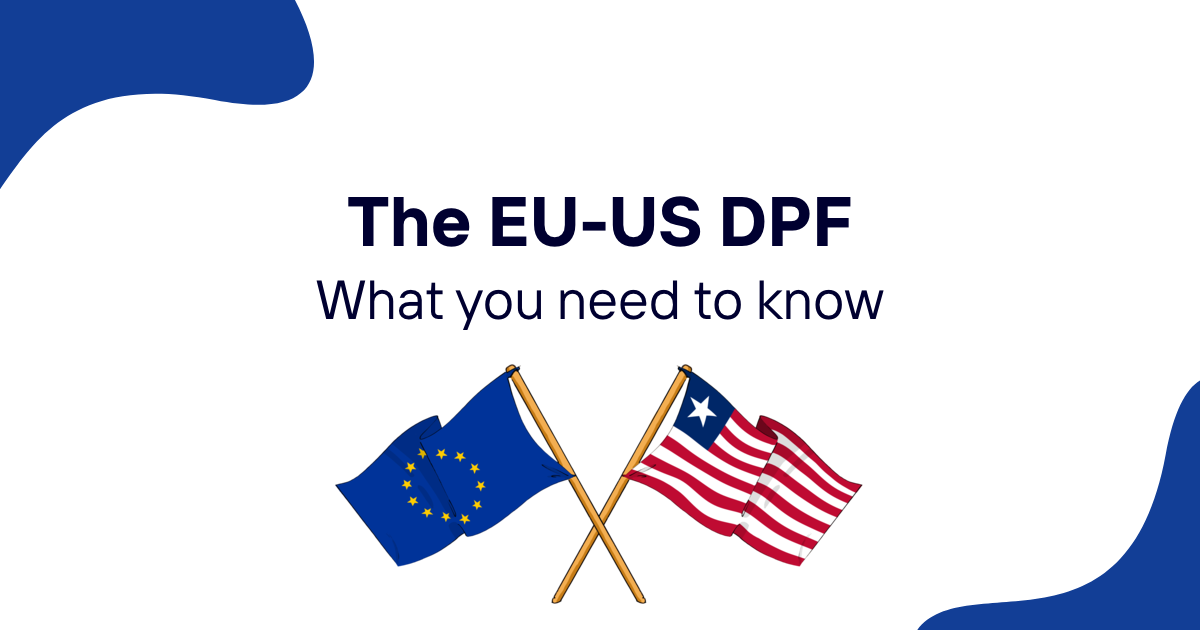On July 10, 2023, the European Commission adopted the Adequacy Decision for the European Union (EU)-United States (US) Data Privacy Framework (DPF). This significant step ensures the protection of EU personal data transferred to the US, similar to the protection in the EU. Switzerland is also expected to issue a corresponding adequacy decision soon.
The DPF succeeds the Privacy Shield, which was invalidated in 2020. The DPF allows personal data to flow from the EU to US companies participating in the DPF without needing additional safeguards.
A summary of the Adequacy Decision
The EU has strict data protection laws (GDPR) to protect user privacy. The US does not have the same level of protection. This caused issues for data transfers between EU and US companies.
To allow data transfers, the EU and US agreed on a Data Privacy Framework that ensures EU citizen data is adequately protected when transferred to certified US companies.
The key points are:
- US companies can self-certify to the Framework by pledging strong data protections
- There are limits on use of EU data for surveillance
- EU citizens will have redress options if data is misused
- The US Department of Commerce will conduct annual reviews and enforce compliance
In simple terms:
- EU was worried about US companies misusing EU people's private data
- EU and US made a deal to allow data transfers only if US companies promise to protect the data
- US companies must pinky-promise not to misuse the data
- If they break the promise, they will be punished and people can complain
- The US government will check each year that companies are keeping their promise
This allows EU-US data flows while ensuring EU privacy rights are protected. The EU approved the Framework as providing "adequate" privacy safeguards.
What this means for your B2B SaaS startup
The EU-US Data Privacy Framework Adequacy decision has the following key implications for B2B SaaS startups:
- Allows easier transfer of data between EU and US customers - Startups can more seamlessly provide services to EU companies without running afoul of GDPR.
- Potential competitive advantage over non-certified rivals - Being able to assure EU clients their data is protected under the Framework could give certified startups a leg up.
- Need to self-certify and comply with Framework principles - To benefit, startups must pledge to meet data protection standards laid out in the Framework.
- Annual self-assessment requirement - Companies must evaluate themselves yearly to renew compliance and be eligible for EU data transfers.
- Promotes "privacy by design" approach - Following Framework principles encourages startups to prioritize privacy from the beginning.
- Limited impact on B2C startups - The Framework focuses on B2B data flows, so consumer-focused startups may not be affected.
Overall, the Adequacy decision removes hurdles for transferring B2B customer data between the EU and US. By self-certifying, startups can more seamlessly serve EU markets while ensuring compliance.
If you're looking at how to become GDPR compliant, check out ComplyDog. We provide B2B SaaS companies with a comprehensive out-of-the-box compliance solution. Centralize your data practices, generate documentation, securely manage data subject requests, and more—all with minimal setup required. Start your 14-day free trial of ComplyDog.















